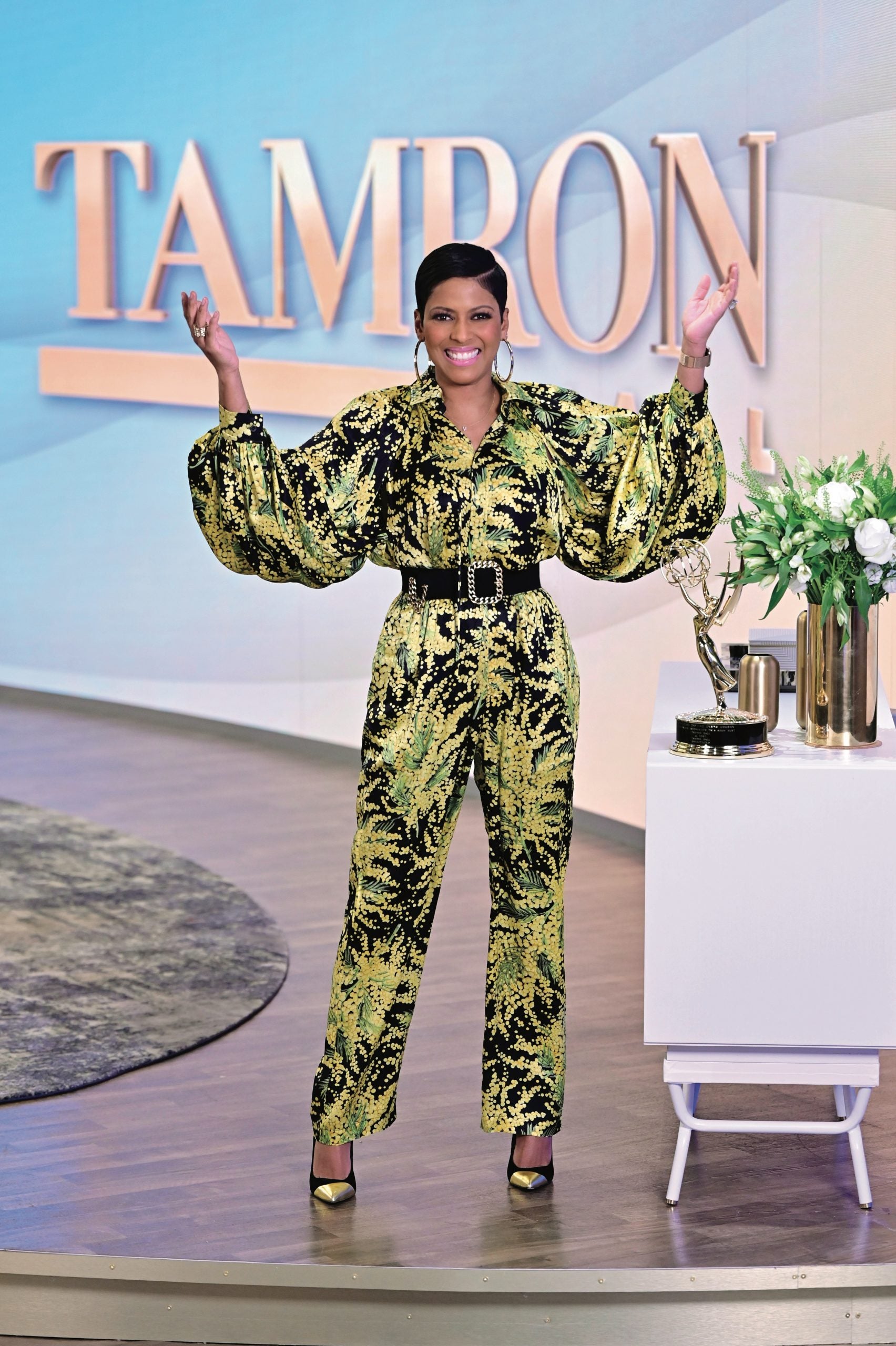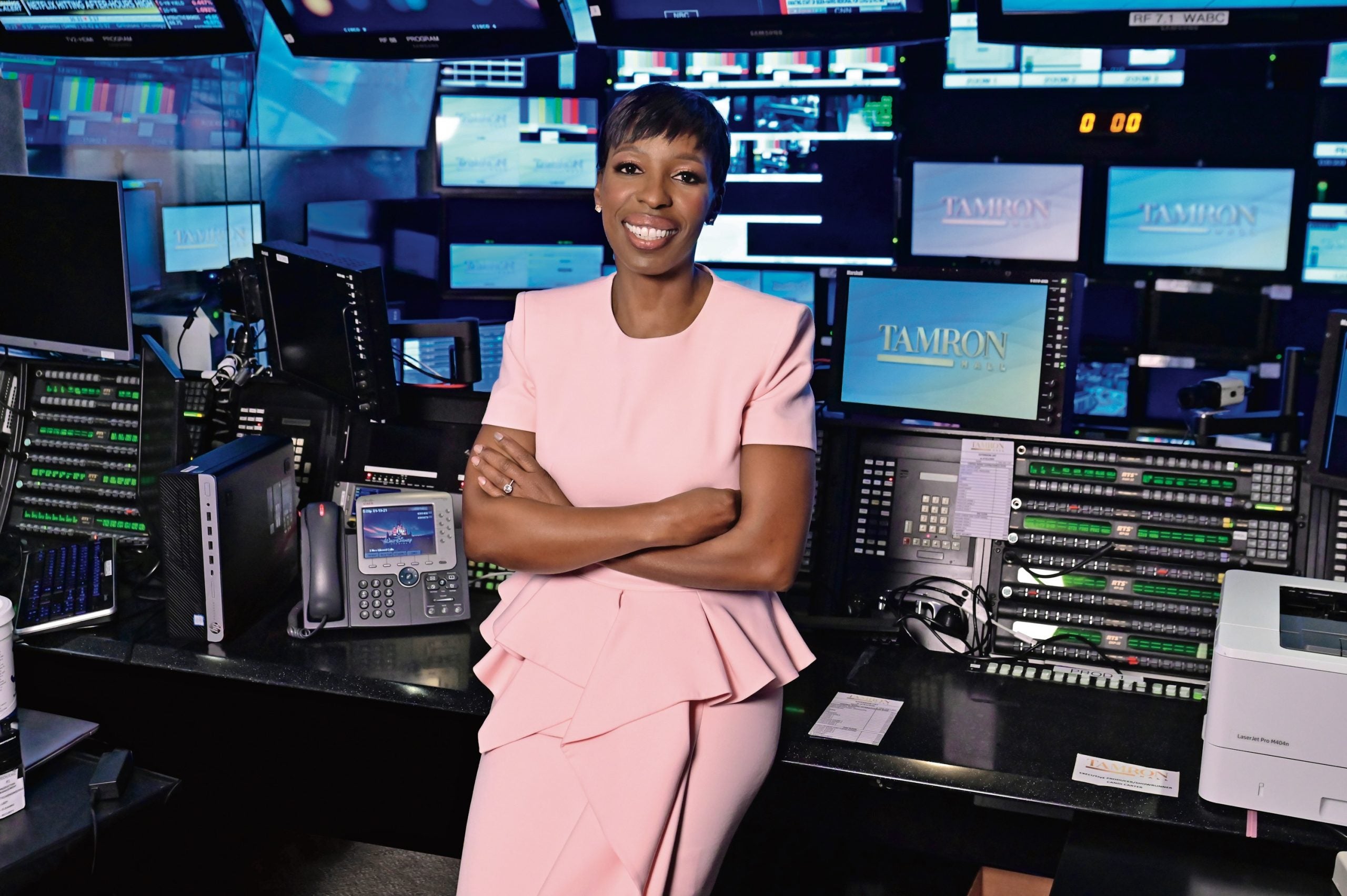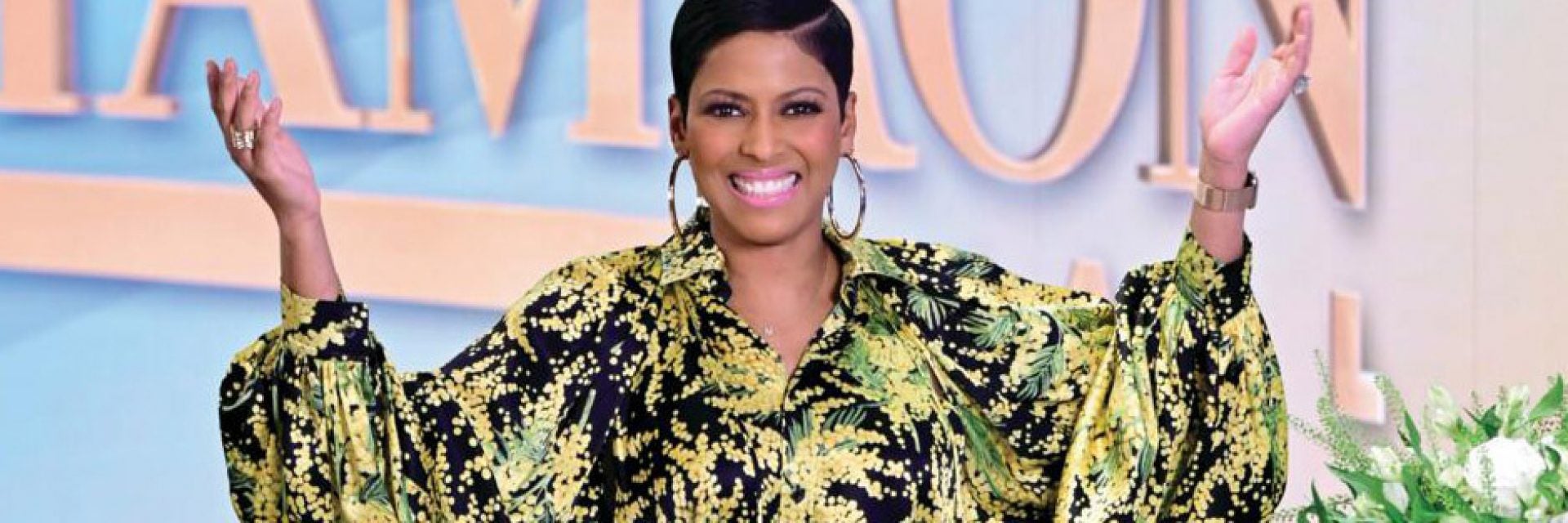It’s the Martin Luther King, Jr., national holiday, but talk show host Tamron Hall and her showrunner and executive producer, Candi Carter, are in the middle of their workday. Amid a pandemic and the upcoming inauguration of a Black woman to the second-highest office in the land, there is a lot to prepare for and discuss. Yet, as both women sit smiling through their computer cameras, utterly relaxed and welcoming, it’s clear they are in command of their own time.
As two Black women at the helm of a nationally syndicated daytime talk show, the Tamron Hall Show, Hall and Carter are committed to reshaping the media landscape. As with many Black women, their paths have not been straightforward: This latest journey began with the doors at NBC slamming in Hall’s face in 2017. “I didn’t envision this show,” she reflects. “I did know, when I left NBC, that I would not put myself in a position again where I had to plead for my job. I clearly had value, but ‘To whom?’ was the question. At the end of the day, I knew that value belonged to me.”

Two years later, the veteran TV anchor would walk onto the set of her self-titled show. Since then, Hall has elevated the stories and the people who have impacted her, while showcasing her vast skill set. But just as she was hit- ting her stride, the COVID-19 pandemic forced her to recalibrate. However, this time she had Carter, The View’s former executive producer, in her corner. “Half-way through the first season, I realized that the vision of the show that I wanted was not quite there,” Hall explains. “Tyler Perry suggested that Candi and I have a conversation. Tyler said, ‘Together, you will be formidable.’ ”
The connection between the women felt like Kismet. “What I saw in Tamron’s show was an incredibly talented person who needed a different producer—someone who got her,” Carter says. “Imagine the magic you can create with people you really connect with, when there’s no real ego involved.”
Since Carter, who coproduced The Oprah Winfrey Show for years, came through the door, success of the Tamron Hall Show has skyrocketed. The show earned a Season 3 renewal just a few weeks into Season 2—and Hall won a 2020 Daytime Emmy for outstanding informative talk show host. In addition to allowing guests like former gubernatorial candidate Andrew Gillum and singer/ reality star Tamar Braxton to speak their truths, Carter and Hall also provide a platform for new voices and visionaries. One of the episodes that Hall is most proud of is titled “Hear Us Now,” which spotlighted activists at the forefront of Black Lives Matter marches in the summer of 2020 following the murder of George Floyd.
Helming the show has also allowed Hall and Carter to combat untruths and rumors about their business practices. “I know where our hearts are,” Carter says. “I know that our intention is to help and to impact people. We care about our staff; we care about our viewers. We have the power to not let somebody else create a narrative about us, which I think often happens with Black women.” Carter and Hall are also very aware of their legacy. “That’s the specialness about being Black creatives,” Hall says. “Even when we’ve not felt welcome to the party, we have welcomed others. I replaced the same Black woman two times in my career, at two different news organizations—and not because of any other reason than they felt there was a one-for-one. I walked in, and I wanted the job, but at the same time, it was gut-wrenching.”

With the Tamron Hall Show, Hall and Carter are doing their best to make sure that no one ever again sees Black women on television as interchangeable. “If you look at our staff, the five people who run the show are all women,” Carter says. “And the entire staff is so incredibly diverse. It’s not a Black/White show.”
The path forward hasn’t always been rosy for either woman, but they both know a thing or two about longevity. “I always tell people that to have a lasting career, you have to keep reinventing yourself,” Carter reflects.
“I have never been comfortable anywhere. There’s always more for me to do. You have to stay relevant. You have to stay connected. You have to learn new skills. I’m a hustler. I always tell people, ‘If you think you can outwork me, good luck—because it’s an internal drive. Storytelling is my life.’ ”
This article originally appeared in the March/April issue of ESSENCE magazine, available on newsstands now.


